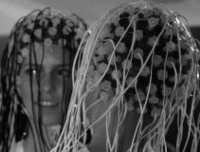The Future Music Lab at the University of Plymouth, England, is looking for new modes of interaction with musical systems through bio-signal interfacing, networks and responsive environments.
One of the projects the team is working on is a “brain cap” that can detect and recognize musical ideas in the minds of composers with up to 99 percent accuracy. Project leader Eduardo Reck Miranda reported up to 99 percent accuracy in recognizing specific electroencephalogram patterns for musical ideas using a 128-electrode EEG brain cap with signal-processing algorithms.

“When the technology is more mature we will test it with musician patients at the Royal Hospital of Neuro-Disability in London” said Miranda. “The idea is to let these patients have the opportunity to continue making music, provided that the brain damage did not impair their musical cognition.”
Although the musical ideas tested were extremely simplistic, compared with the complexity of musical composition, the team has demonstrated that the idea of interfacing the brain with computers for musical applications is no longer a science fiction fantasy.
Miranda also plans to switch from the 128-electrode brain cap (rather cumbersome and inelegant) to a magnetic encephalogram, which records the magnetic field generated by neural activity. MEGs are less well-developed than EEGs, but they should provide more accurate, localized signals that might not even require a cap.
Via this annoyingly good blog. Further info.







